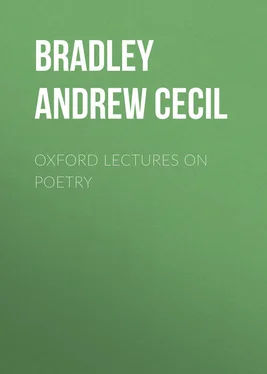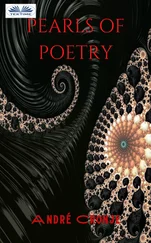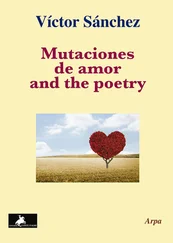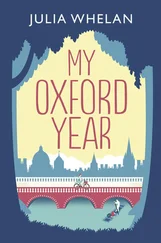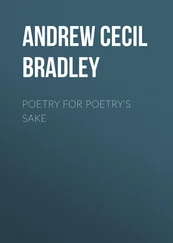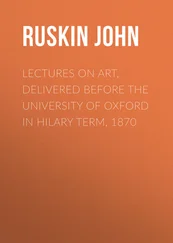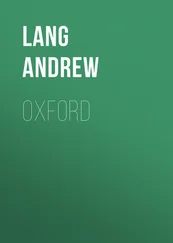Andrew Bradley - Oxford Lectures on Poetry
Здесь есть возможность читать онлайн «Andrew Bradley - Oxford Lectures on Poetry» — ознакомительный отрывок электронной книги совершенно бесплатно, а после прочтения отрывка купить полную версию. В некоторых случаях можно слушать аудио, скачать через торрент в формате fb2 и присутствует краткое содержание. ISBN: , Жанр: foreign_antique, foreign_prose, foreign_poetry, на английском языке. Описание произведения, (предисловие) а так же отзывы посетителей доступны на портале библиотеки ЛибКат.
- Название:Oxford Lectures on Poetry
- Автор:
- Жанр:
- Год:неизвестен
- ISBN:http://www.gutenberg.org/ebooks/36773
- Рейтинг книги:4 / 5. Голосов: 1
-
Избранное:Добавить в избранное
- Отзывы:
-
Ваша оценка:
- 80
- 1
- 2
- 3
- 4
- 5
Oxford Lectures on Poetry: краткое содержание, описание и аннотация
Предлагаем к чтению аннотацию, описание, краткое содержание или предисловие (зависит от того, что написал сам автор книги «Oxford Lectures on Poetry»). Если вы не нашли необходимую информацию о книге — напишите в комментариях, мы постараемся отыскать её.
Oxford Lectures on Poetry — читать онлайн ознакомительный отрывок
Ниже представлен текст книги, разбитый по страницам. Система сохранения места последней прочитанной страницы, позволяет с удобством читать онлайн бесплатно книгу «Oxford Lectures on Poetry», без необходимости каждый раз заново искать на чём Вы остановились. Поставьте закладку, и сможете в любой момент перейти на страницу, на которой закончили чтение.
Интервал:
Закладка:
They flash upon that inward eye
Which is the bliss of solitude.
But there remains something still more intimately Wordsworthian:
I wandered lonely as a Cloud
That floats on high o’er vales and hills.
It is thrust into the reader’s face, for these are the opening lines. But with many readers it passes unheeded, because it is strange and outside their own experience. And yet it is absolutely essential to the effect of the poem.
This poem, however, even when thoroughly conventionalised, would remain, as I said, a pretty thing; and it could scarcely excite derision. Our point is best illustrated from the pieces by which Wordsworth most earned ridicule, the ballad poems. They arose almost always from some incident which, for him, had a novel and arresting character and came on his mind with a certain shock; and if we do not get back to this through the poem, we remain outside it. We may, of course, get back to this and yet consider the poem to be more or less a failure. There is here therefore room for legitimate differences of opinion. Mr. Swinburne sees, no doubt, as clearly as Coleridge did, the intention of The Idiot Boy and The Thorn , yet he calls them ‘doleful examples of eccentricity in dullness,’ while Coleridge’s judgment, though he criticised both poems, was very different. I believe (if I may venture into the company of such critics) that I see why Wordsworth wrote Goody Blake and Harry Gill and the Anecdote for Fathers , and yet I doubt if he has succeeded in either; but a great man, Charles James Fox, selected the former for special praise, and Matthew Arnold included the latter in a selection from which he excluded The Sailor’s Mother . 40 40 Goody Blake , to my mind, tries vainly to make the kind of impression overwhelmingly made by Coleridge’s Three Graves . The question as to the Anecdote for Fathers is not precisely whether it makes you laugh, but whether it makes you laugh at the poet, and in such a way that the end fails to restore your sobriety. The danger is in the lines, And five times to the child I said, Why, Edward, tell me why? The reiteration, with the struggle between the poet and his victim, is thoroughly Wordsworthian, and there are cases where it is managed with perfect success, as we shall see; but to me it has here the effect so delightfully reproduced in Through the Looking-glass (‘I’ll tell thee everything I can’).
Indeed, of all the poems at first most ridiculed there is probably not one that has not been praised by some excellent judge. But they were ridiculed by men who judged them without attempting first to get inside them. And this is fatal.
I may bring out the point by referring more fully to one of them. Alice Fell was beloved by the best critic of the nineteenth century, Charles Lamb; but the general distaste for it was such that it was excluded ‘in policy’ from edition after edition of Wordsworth’s Poems; many still who admire Lucy Gray see nothing to admire in Alice Fell ; and you may still hear the question asked, What could be made of a child crying for the loss of her cloak? And what, I answer, could be made of a man poking his stick into a pond to find leeches? What sense is there in asking questions about the subject of a poem, if you first deprive this subject of all the individuality it possesses in the poem? Let me illustrate this individuality methodically. A child crying for the loss of her cloak is one thing, quite another is a child who has an imagination, and who sees the tattered remnants of her cloak whirling in the wheel-spokes of a post-chaise fiercely driven by strangers on lonesome roads through a night of storm in which the moon is drowned. She was alone, and, having to reach the town she belonged to, she got up behind the chaise, and her cloak was caught in the wheel. And she is fatherless and motherless, and her poverty (the poem is called Alice Fell, or Poverty ) is so extreme that for the loss of her weather-beaten rag she does not ‘cry’; she weeps loud and bitterly; weeps as if her innocent heart would break; sits by the stranger who has placed her by his side and is trying to console her, insensible to all relief; sends forth sob after sob as if her grief could never, never have an end; checks herself for a moment to answer a question, and then weeps on as if she had lost her only friend, and the thought would choke her very heart. It was this
Конец ознакомительного фрагмента.
Текст предоставлен ООО «ЛитРес».
Прочитайте эту книгу целиком, купив полную легальную версию на ЛитРес.
Безопасно оплатить книгу можно банковской картой Visa, MasterCard, Maestro, со счета мобильного телефона, с платежного терминала, в салоне МТС или Связной, через PayPal, WebMoney, Яндекс.Деньги, QIWI Кошелек, бонусными картами или другим удобным Вам способом.
1
The lecture, as printed in 1901, was preceded by the following note: “This Lecture is printed almost as it was delivered. I am aware that, especially in the earlier pages, difficult subjects are treated in a manner far too summary, but they require an exposition so full that it would destroy the original form of the Lecture, while a slight expansion would do little to provide against misunderstandings.” A few verbal changes have now been made, some notes have been added, and some of the introductory remarks omitted.
2
Note A.
3
Note B.
4
What is here called ‘substance’ is what people generally mean when they use the word ‘subject’ and insist on the value of the subject. I am not arguing against this usage, or in favour of the usage which I have adopted for the sake of clearness. It does not matter which we employ, so long as we and others know what we mean. (I use ‘substance’ and ‘content’ indifferently.)
5
These remarks will hold good, mutatis mutandis , if by ‘substance’ is understood the ‘moral’ or the ‘idea’ of a poem, although perhaps in one instance out of five thousand this may be found in so many words in the poem.
6
On the other hand, the absence, or worse than absence, of style, in this sense, is a serious matter.
7
Note C.
8
This paragraph is criticized in Note D.
9
Note E.
10
Not that to Schiller ‘form’ meant mere style and versification.
11
Note F.
12
Note G.
13
In Schiller’s phrase, they have extirpated the mere ‘matter.’ We often say that they do this by dint of style. This is roughly true, but in strictness it means, as we have seen, not that they decorate the mere ‘matter’ with a mere ‘form,’ but that they produce a new content-form.
14
I have learned something from many discussions of this subject. In its outline the view I have taken is perhaps nearer to Hartmann’s than to any other.
15
Popular usage coincides roughly with this sense. Indeed, it can hardly be said to recognise the wider one at all. ‘Beauty’ and ‘beautiful,’ in that wider sense, are technical terms of Aesthetics. It is a misfortune that the language of Aesthetics should thus differ from the ordinary language of speech and literature; but the misfortune seems to be unavoidable, for there is no word in the ordinary language which means ‘whatever gives aesthetic satisfaction,’ and yet that idea must have a name in Aesthetics.
Читать дальшеИнтервал:
Закладка:
Похожие книги на «Oxford Lectures on Poetry»
Представляем Вашему вниманию похожие книги на «Oxford Lectures on Poetry» списком для выбора. Мы отобрали схожую по названию и смыслу литературу в надежде предоставить читателям больше вариантов отыскать новые, интересные, ещё непрочитанные произведения.
Обсуждение, отзывы о книге «Oxford Lectures on Poetry» и просто собственные мнения читателей. Оставьте ваши комментарии, напишите, что Вы думаете о произведении, его смысле или главных героях. Укажите что конкретно понравилось, а что нет, и почему Вы так считаете.
